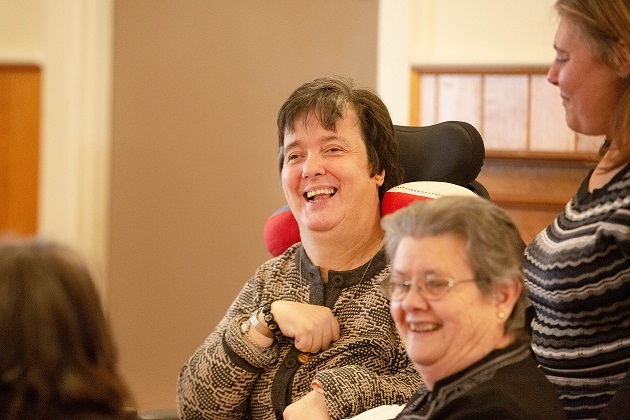How to Choose the Right Disability Service
Selecting the right disability service provider is of paramount importance, as it can profoundly impact the quality of life and support available to individuals with disabilities.

At the eSafety Commissioner’s national consultation on Australia’s impending social media minimum age requirements, we highlighted the importance of education and accessible information to ensure every young person is supported to be safe online.
With the legislation set to take effect later this year, Scope was selected to join representatives from the technology industry, digital rights organisations, and peak bodies to discuss what needed to be considered prior to implementation. The discussions will help shape the development of the eSafety Commissioner's guidance, which will include practical advice for industry and inform awareness efforts.
Katie Lyon, Acting General Manager of Scope’s Communication and Inclusion Resource Centre (CIRC), represented Scope and advocated for greater focus on online safety education and accessible resources that are suitable for young people with communication disability and low literacy.
“Most online safety education just isn’t built to be accessible for everyone. Educators and parents do their best but it’s incredibly difficult – they’re either forced to use resources that aren’t age appropriate or create their own resources with no support,” said Katie.
For many young people with disability, being online is an opportunity for social connection and participation that might not be readily available to them in the physical world. But research shows these young people are more likely to be bullied, scammed, or exposed to harmful content online.
Katie said preparing young people to use social media safely should be a key part of the legislation’s implementation, including ensuring access to tools such as Scope's Be Safe Online resources.

"We can’t let young people with disability enter the online world without the appropriate education or resources to stay safe online,” said Katie.
Be Safe Online, developed with support from an eSafety Commissioner Online Safety Grant, is a set of online safety resources for young people with communication disability and low literacy, that have been co-designed with people living with disability.
“Scope’s focus is on doing whatever we can to get Be Safe Online into the hands of young people with disability, and their parents, carers, and educators."
For more information on the social media minimum age requirements, visit the eSafety Commissioner website.